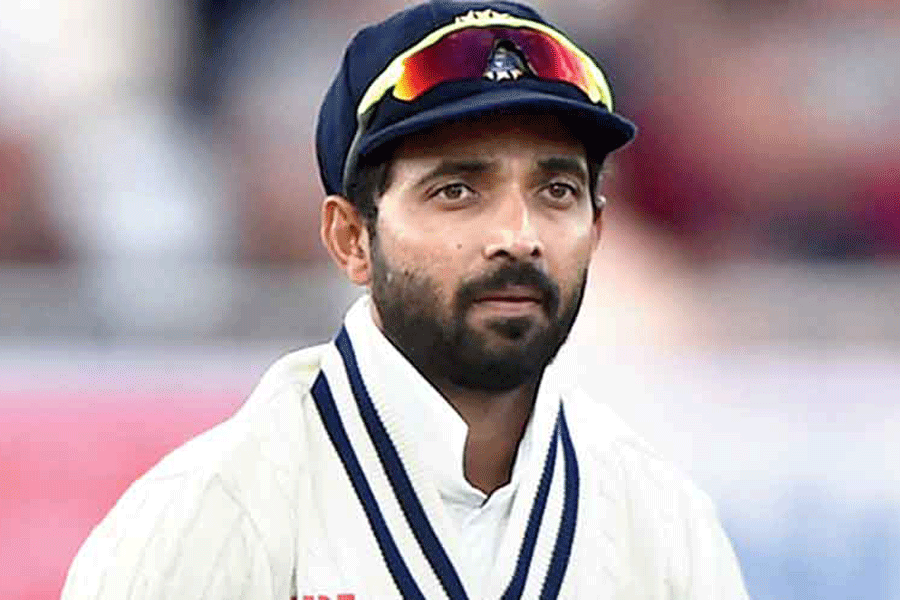The Legacy of Alexei Navalny: Russia's Charismatic Opposition Leader
Reflections on his Impact, Tragic Death, and the Future of Russian Politics

Alexei Navalny, the most well-known opposition figure in Russia, passed away on Friday in a remote Arctic jail, bringing an end to one of the most daring political careers in modern history and depriving Russia's wartime leadership of its most compelling anti-war voice.
After more than ten years as President Vladimir Putin's most vocal adversary, Navalny, whose demise was announced by Russian authorities, was able to more effectively channel popular resistance against the Russian leader than any other opponent of the Kremlin. Following his recovery in Germany in 2020 from a poisoning that was generally believed to have been orchestrated by the Kremlin, Navalny returned to Russia in 2021 and was detained right away.
But even from jail, Navalny—a gregarious, straight-talking, joker—remained relevant, posting on Instagram via communications his attorneys sent to him that were both hilarious and infuriating. In addition to railing against the "criminal" conflict in Ukraine, which he said would result in the "continued impoverishment of Russian people," he begged Russians to resist giving up and to disregard their worries.
Politicians and his admirers throughout the globe were taken aback by the news of his death. Moscow political expert Mikhail Vinogradov called it the most startling political death in Russian history since the fall of the Soviet Union. In cities throughout the globe, Russians gathered for spontaneous vigils, and pictures of individuals placing flowers at memorial places in Russian cities circulated on social media.
In an interview from the southern city of Rostov-on-Don, a 28-year-old man said, "I wanted to believe that Russia had its own Nelson Mandela," requesting that his identity not be revealed for his protection. "This man is not here anymore."
According to his spokeswoman, Putin was informed of Navalny's passing but chose not to respond. At the White House, President Joe Biden said that "Putin is responsible for Navalny's death." Additionally, Yulia Navalnaya, the spouse of Navalny, made an unexpected appearance at the platform of a high-level security conference in Munich, where she promised that Putin's regime will be "brought to justice."
The compelled exiled aides of Navalny, who have their headquarters in Lithuania, said they were unable to confirm their boss's death right away. They stated that his lawyer and family were scheduled to arrive in the isolated village in the Arctic where he was being kept on Saturday. However, by Friday night, they said they had the worst suspicions.
Other than a brief statement from Russia's federal prison service stating that Navalny lost consciousness after going on a stroll and that medical personnel were unable to revive him, there was little clarity about the specific circumstances surrounding his death.
However, proponents of Navalny and prominent Western figures including as Biden said that Putin bore all responsibility for his demise, having decided three years before to imprisoning his most formidable political opponent.
Subsequently, Navalny faced harsher treatment in jail and further accusations that would have carried out his sentence for an additional 10 years, indicating that Putin was desperate to prevent Navalny from becoming a strong voice for opposition once again.
Previously, Navalny had built a national political network, drawing support from a much wider spectrum of Moscow's middle class liberals with his populist rhetoric and YouTube exposés against dishonest officials.
The Kremlin attempted to subdue the feelings of the day. Putin did not bring up Navalny when he made an appearance at a regular event in the Ural Mountains area. Instead, he was questioned about government subsidies, robotics, and engineering schools. Later, his spokesman, Dmitry Peskov, said that foreign authorities blaming the Kremlin for the death was "absolutely unacceptable" as "there is no information about the cause of death."
Only one month before Russia's presidential elections, when the Kremlin hopes to project Russian unity behind Putin's candidacy for a fifth term, the news of Navalny's death was made public. Experts anticipate that the Kremlin would attempt to combine its certain election success with more victories on the Ukrainian front, where Russian soldiers have been seizing the lead against an increasingly weak Ukrainian army.
With his most well-known opponents in prison or exile, Putin looks to have almost complete control over domestic politics as the third year of the conflict draws to a close. Protests in the streets are quickly put down, and hundreds of Russians have faced legal action for opposing the war.
Since the Kremlin has been able to carry out its invasion without using a second military draft by paying large wages to prospective recruits, the majority of Russians have been allowed to go on with their normal lives. The extensive sanctions imposed by the West have not destroyed Russia's economy.
However, for other observers, Navalny's passing serves as a warning that Putin's hold on power may not be as solid as it first seems. Navalny was skilled at using Putin's weaknesses, which are certain to remain hot spots even after his passing. These include corruption and simmering dissatisfaction with the war.
Vinogradov said that Navalny "tended to sense the vulnerable points, rather than create them."
Now that Navalny is no longer serving as a spokesperson for popular ire, several opposition leaders think that other centers of discontent may arise.
Leading Russian opposition activist and former oil billionaire Mikhail Khodorkovsky, who served ten years in a Russian jail, said that Putin's opponents now needed to come together and capitalize on Navalny's legacy. His assertion was that Navalny's demise demonstrated that Putin's opponents needed to unite in opposition to the Kremlin, instead of uniting behind a single figurehead.
He said, "A coalition as a system is far more stable." "When one person leaves, others stay behind and new people come along."
One of the main concerns in Russia is if the Kremlin would restrict and censor the public after Navalny's passing. Political expert Tatiana Stanovaya said on Friday that Navalny continues to be a headache for the Kremlin even in death.
The regime's tendency to overreact might turn into a problem in and of itself, according to Stanovaya, a senior scholar at the Carnegie Russia Eurasia Center. "They'll need to handle Navalny's legacy."
Within hours after Navalny's alleged death, the strength of that legacy was already evident. At Moscow's snow-covered Solovetsky Stone monument, which honors those who perished in Stalin's persecution, Russians laid wreaths and candles on the ground.
Former Kremlin advisor turned opposition leader Marat Guelman expressed his belief that Navalny's passing might revitalize Russia's battered and fragmented opposition parties in front of the Russian Embassy in Berlin.
He expressed his desire that 100 heroes will replace one hero in Russia.
Except for the headline, this story has not been edited by Press Time staff and has been published from a syndicated feed.























































